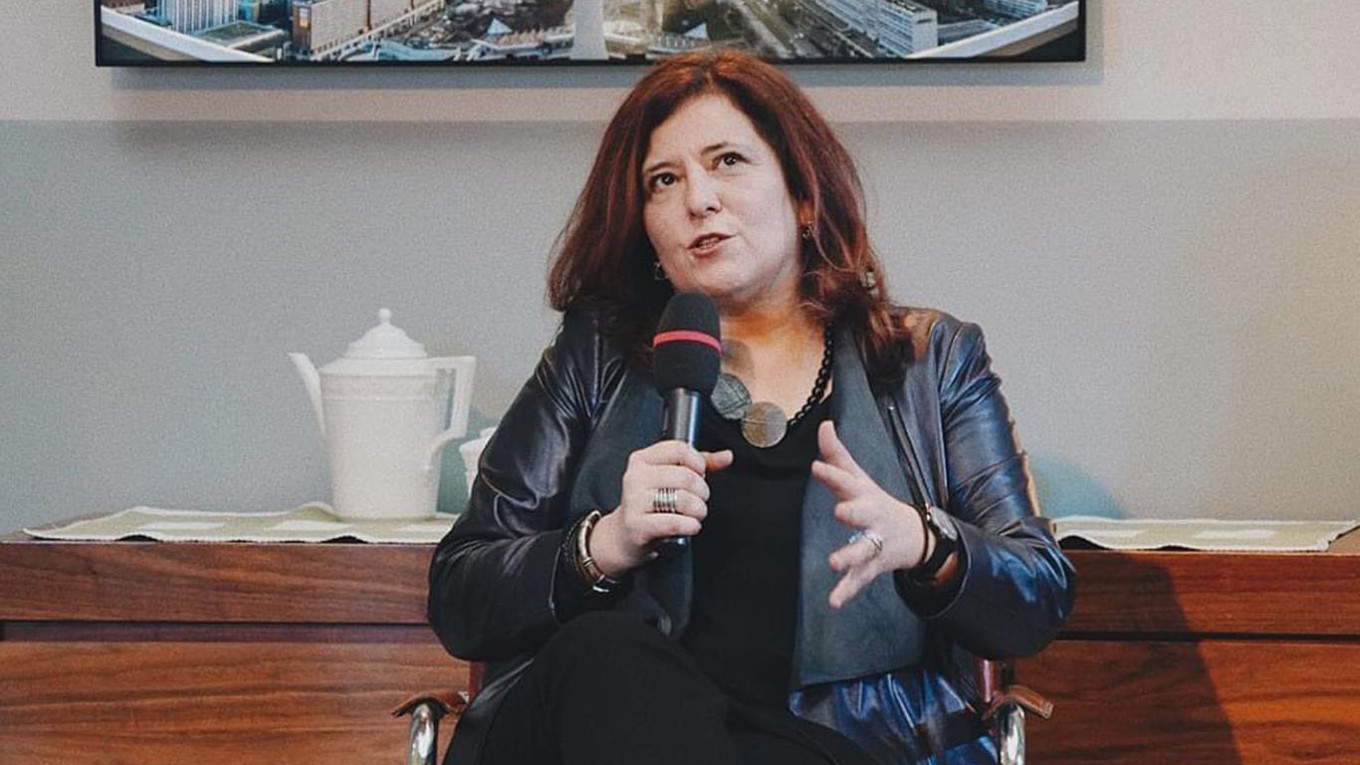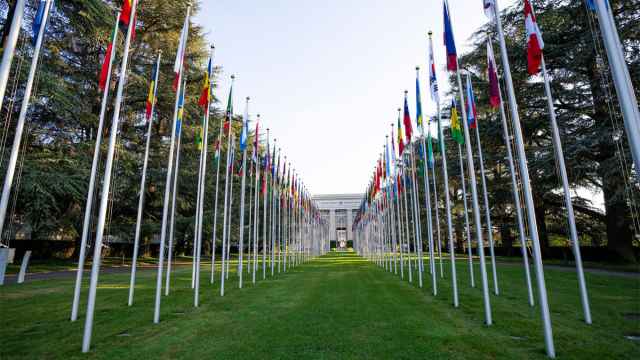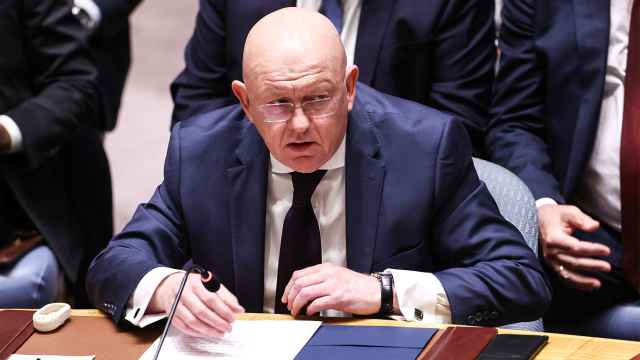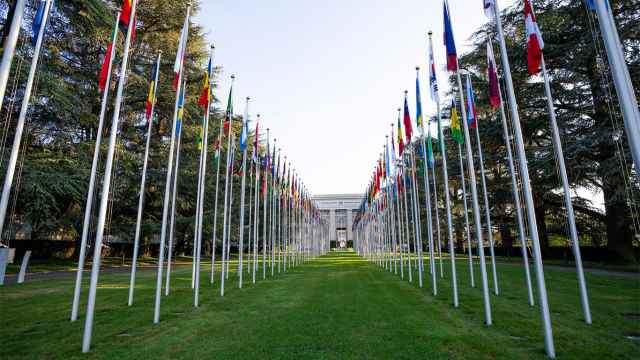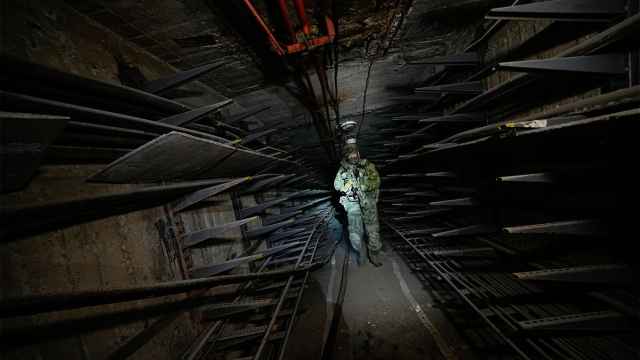Since Mariana Katzarova was appointed the UN special rapporteur on human rights in Russia in 2023, Russian authorities have consistently refused to engage with her or allow her to visit the country.
In an interview with The Moscow Times, Katzarova said her work has documented a deliberate strategy of repression and subjugation in Russia — based on testimonies from victims and witnesses — in which the legal system is being used to punish anti-war sentiment and suppress civil society.
“There is now a structural, state-sponsored system of human rights violations, legalized through new or amended legislation aimed at suppressing civil society, dissenting voices and political opposition,” Katzarova said in her latest report to the UN.
“An environment of total impunity has been created, alongside a lack of independent institutions to uphold the rule of law and ensure access to justice,” she said.
An international human rights expert and former journalist, Katzarova led the Amnesty International investigations on human rights in Russia and the Chechen wars for a decade.
Between 2014 and 2016, during the early years of the armed conflict in Ukraine, Katzarova led the UN’s Human Rights Monitoring Mission in the Donbas as head of its regional office in eastern Ukraine.
The Moscow Times asked Katzarova about the scope of her work and her views on the human rights situation in Russia.
This interview has been edited for length and clarity.
The Moscow Times: Can you elaborate on the scope of your responsibilities and what concrete steps you are empowered to take in this capacity?
Mariana Katzarova: First of all, we need to understand that this United Nations mandate is completely unique. The UN is a multifaceted organization: it's a humanitarian agency, it's the member states and it's the machinery of the UN human rights mechanisms. I’m one of those mechanisms. I'm an independent expert, and as the special rapporteur, I’m not responsible for what the entire UN can or cannot do — there are different bodies within the UN.
I have been entrusted with the mandate on Russia — to report on the human rights situation there. I follow a resolution that was adopted by the member states, and I operate as an independent expert, uninfluenced by any government or non-governmental organization. My reports are based on my own observations and on first-hand accounts and evidence from victims, witnesses of human rights violations or their lawyers.
Despite my repeated requests, the Russian authorities have not allowed me to visit the country. Every special rapporteur should be able to visit the state they are monitoring.
In July 2023, the [Russian UN representative] in Geneva gave an interview to [state-run TV channel] Rossia 24 and said: ‘We’re not planning to recognize the mandate of the Special Rapporteur on Russia… We cannot be monitored, and we are not planning to communicate with this mandate-holder, because she’s an active Russophobe.’ Even the journalist responded, ‘But what kind of Russophobe is she? She’s Bulgarian, she speaks Russian, she never said anything against Russia or the Russian people.’ I often cite this, because it's my only indirect communication with Russian authorities. After that, they sent a letter to all UN special rapporteurs stating that they do not recognize my mandate and that if others sign communications or public statements with me, they will not respond.

I see my role — and these mechanisms in general — as advisory: advising governments and criminal justice systems on how to improve and protect the human rights of their own people. In my case, that’s Russia. But unfortunately, my offer is not being accepted.
As for concrete steps — I am already two years into my mandate. I submit mandatory reports: one annually to the Human Rights Council in Geneva and one to the General Assembly in New York. In these reports, I provide updates on legal developments and document human rights violations.
MT: What is your view of the current state of human rights law in Russia?
MK: In my reports, I describe what I see — through the eyes of victims, witnesses, family members and their lawyers. People write to me about their cases. What I observe is a strategy of repression and subjugation, a deliberate effort to eliminate civil society and independent media. This strategy has escalated dramatically since the full-scale invasion of Ukraine. Any expression of anti-war sentiment is severely punished. Journalists and human rights defenders, of course, but also pensioners, poets, doctors, even children and teenagers. Some minors have been charged with treason or with violating national security laws simply for expressing anti-war views. The entire legal and judicial system is being used as a tool for repression and punishment for any sentiment against the war. This is what I write about in my reports. I also give recommendations to the Russian government to respect its international legal obligations and commitments under UN conventions.
I am in constant communication with victims of human rights violations in Russia: people who have been tortured, imprisoned for anti-war views, members of the LGBT community — which has been declared “extremist” — [and] Indigenous people and national minorities. As you know, dozens of minority and Indigenous organizations have been labeled as terrorist groups.
MT: You mentioned that the Russian authorities refuse to communicate with you. Is dialogue still possible?
MK: I believe there is always room for dialogue — that’s precisely why I believe in the United Nations. How can we achieve lasting peace after a war — like the war against Ukraine — if there is no conversation? This in particular is an obligation of any member state of the United Nations — let alone Russia, which plays a leading role as one of the five permanent members of the Security Council.
When you have such an important role in this international organization, you have to follow the rules, conventions and legal instruments that you've signed and ratified.
My first report to the General Assembly focused on torture in Russia as a tool of repression at home and aggression abroad. This applies both to Russian anti-war activists and to groups targeted for their identity — such as LGBT people or religious minorities — and also to Ukrainian civilians and POWs held in Russian detention.
Thousands of Ukrainian detainees are being held incommunicado, subjected to torture or in conditions amounting to torture. Torture is prohibited under all circumstances by the United Nations Convention against Torture. Russia is a party to that convention. I’ve issued detailed recommendations to the Russian government on how to stop the practice of torture — but nothing is happening. On the contrary, torture is being encouraged.
After the terrorist attack at Crocus City Hall in Moscow [in 2024], the Russian authorities, for the first time, allowed torture to be broadcast on national television. One suspect was shown with his ear cut off and one was tortured with electric shocks to his genitals. Then it was even shown on TV how they [the suspects] were brought to court half-dead and the judge did not question why they appeared this way. In any normal court, an investigation would be ordered. The public legitimization of torture on national television is one of the most worrying developments we’ve seen in Russia. Before, it was happening behind closed doors in secret. Now it's public with some people on TV even saying that was not enough.
Where is the presumption of innocence? Where are the principles of the rule of law? Where is court independence? All of this is part of a repressive system. And it is very concerning.
You asked whether dialogue is possible — I am ready for it. I welcome dialogue. Dialogue with the courts, with the ombudswoman, with the prosecutor general, with the Interior and Defense Ministries. There’s a lot to talk about in order for the Russian people to have some chance for justice.
A Message from The Moscow Times:
Dear readers,
We are facing unprecedented challenges. Russia's Prosecutor General's Office has designated The Moscow Times as an "undesirable" organization, criminalizing our work and putting our staff at risk of prosecution. This follows our earlier unjust labeling as a "foreign agent."
These actions are direct attempts to silence independent journalism in Russia. The authorities claim our work "discredits the decisions of the Russian leadership." We see things differently: we strive to provide accurate, unbiased reporting on Russia.
We, the journalists of The Moscow Times, refuse to be silenced. But to continue our work, we need your help.
Your support, no matter how small, makes a world of difference. If you can, please support us monthly starting from just $2. It's quick to set up, and every contribution makes a significant impact.
By supporting The Moscow Times, you're defending open, independent journalism in the face of repression. Thank you for standing with us.
Remind me later.



